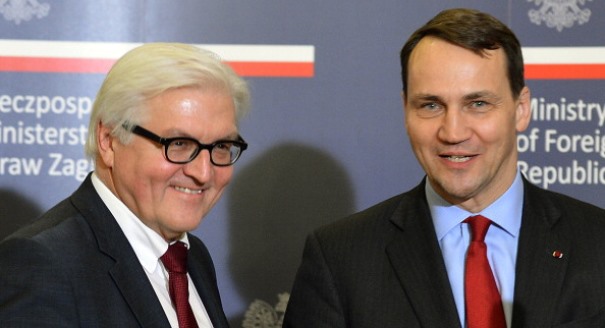Too many bad things have happened in Ukraine. Since the start of the current antigovernment demonstrations, five protesters have been killed and many others beaten up. The hospitals are treating people shot with live bullets. There are reports of torture by the security forces, whose brutality and insidiousness were exposed by a graphic report in the Frankfurter Allgemeine Zeitung.
The violence intensified on January 17 after Ukrainian President Viktor Yanukovych pushed through draconian laws aimed at suppressing a wide range of civil rights. Ever since, sections of the opposition have become increasingly violent. Most people, however, are simply fed up with ineffectual opposition leaders, fed up with Yanukovych’s rule, and fed up with the authorities’ corruption and lying.
As a result, Ukraine is rapidly being drawn into an ever-worsening cycle of violence. If this continues, the country could face a very dark future, as the Polish Institute of International Affairs, a think tank, outlined.
European leaders cannot allow any further escalation. The violence in Ukraine goes against all the values that the EU stands for. If European leaders disagree over how to deal with this crisis on its own doorstep, what hope is there for prodemocracy and civil-society movements in Armenia, Belarus, Georgia, and Moldova—and Turkey? In Ukraine, the EU needs to defend its vital interests and values.
In practical terms, the EU should ask the German and Polish foreign ministers, Frank-Walter Steinmeier and Radek Sikorski, to mediate between Yanukovych and Ukraine’s opposition.
Steinmeier, as a representative of the EU’s most powerful member state, would carry far more weight than any top EU official. It would be difficult for Yanukovych to reject his mediating efforts. And, with support from German Chancellor Angela Merkel, Steinmeier could also be the right person to reassure Vladimir Putin, the Russian president, that Berlin would be an honest broker.
Gernot Erler, Germany’s new coordinator for Russia and the EU’s Eastern neighborhood, told Carnegie Europe that Germany viewed Ukraine and the other countries in Europe’s East through the prism of Russia. In other words, Berlin has always closely followed Moscow’s reactions and interests in the shared neighborhood—and, indeed, those reactions and interests have influenced German policies in the region.
Now, however, is the time for Germany to adopt a new strategy by mediating in Kiev. Recall the 2004 Orange Revolution: the then German chancellor Gerhard Schröder was invisible when it came to any mediating efforts. He was too close to Putin to take an independent stand on Ukraine. In the end, it was left mostly to Poland to forge a compromise between the government and the opposition.
In the latest crisis, Warsaw brings a different set of assets to the table. Don’t underestimate how hard Poland has worked to revamp the EU’s Eastern Partnership initiative. Sikorski and his experts know the region extremely well, having spent the past several years working with the leaders and civil-society movements in Belarus, Georgia, Moldova, and Ukraine.
Officials at the foreign ministry in Warsaw admit that it has been difficult and frustrating. But Poland embarked on this venture because its government believes that democracy and freedom aren’t just for EU countries.
While Sikorski would certainly enjoy the Ukrainian opposition’s trust, neither Putin nor Yanukovych would be enthusiastic about his mediation. But rejecting Poland’s efforts would be a big mistake. It would show that Kiev was not interested in any kind of dialogue. And it might persuade other countries, such as Britain, France, and Germany, to introduce sanctions against Yanukovych’s circle such as travel restrictions or the seizure of assets.
There is another reason why it would be unwise for Russia and Ukraine to reject Poland’s mediating efforts out of hand.
Polish Prime Minister Donald Tusk’s center-right government has gone out of its way to improve relations with Russia, long considered one of Poland’s archenemies. Several EU countries, particularly Germany, have praised the effort that Warsaw has invested in repairing that relationship. It is also in Russia’s interests to continue improving relations with Poland, because of the voice Poland exerts in the EU. And neither Poland nor Russia has any interest in Ukraine sliding further toward civil war.
In short, there are many reasons why the EU should delegate Steinmeier and Sikorski (who get along very well) to mediate in Ukraine. Time is of the essence. The country’s opposition is becoming increasingly radicalized, and Yanukovych is becoming increasingly desperate. His offer on January 24 to give one of the opposition leaders the post of prime minister was rejected outright by the demonstrators. They believe neither Yanukovych nor their own leaders.
Now is the time for outside help. This is not about external interference in a domestic crisis. It is about pulling Ukraine back from the brink.








